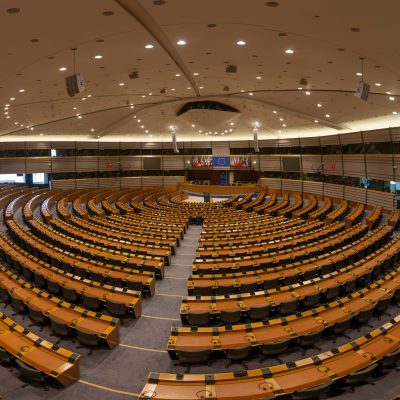[EN] Le Brexit change-t-il la donne pour l’intégration différenciée externe de l’UE?
Publié dans « Vers un partenariat ambitieux, large, profond et flexible entre l’UE et le Royaume-Uni ? » du Brexit Think Tank Group, dirigé par le European Policy Centre (EPC).

Les futures relations entre l’UE et le Royaume-Uni ne peuvent être négociées in abstracto comme une forme puriste de « reprise du contrôle », telle que l’imagine le Premier ministre Boris Johnson. Le Royaume-Uni est le premier pays à quitter l’UE, mais le dernier d’une longue liste de voisins proches et de pays lointains qui ont demandé un accès préférentiel au marché unique de l’Union. Tout accord post-Brexit devra s’inscrire dans un cadre déjà complexe d’intégration externe différenciée. Au fil des ans, l’UE a accepté des modes d’intégration très divers. Chaque accord correspond à un moment précis du projet européen, à un partenaire spécifique et à des objectifs précis, et est mis en œuvre dans le cadre d’un dispositif institutionnel spécifique.
Cependant, alors que le Royaume-Uni espère tirer parti de cette approche ad hoc pour obtenir un accord post-Brexit sur mesure, les négociateurs de l’UE privilégient une approche plutôt systémique. Ces derniers doivent anticiper avec soin les répercussions d’un accord final sur le marché unique, tant sur les États membres que sur les pays bénéficiant de formes spécifiques d’intégration externe différenciée.
La crise économique mondiale provoquée par la pandémie de COVID-19 a profondément transformé l’économie politique post-Brexit. Éviter les coûts économiques supplémentaires d’un Brexit dur pourrait inciter à faire des concessions. Cependant, aujourd’hui plus que jamais, la priorité de l’UE-27, qui se reflète dans son mandat de négociation pour les relations post-Brexit, est de préserver sa compétitivité économique en préservant l’intégrité du marché unique et en utilisant pleinement son poids économique sur les pays tiers.
Alors que (i) l’UE avait lancé une révision des différents accords d’intégration différenciée existants avant même le référendum de 2016, (ii) le Brexit a constitué une incitation supplémentaire à renforcer le contrôle de l’UE sur ses partenaires préférentiels. Le Brexit a conduit à un durcissement de la position de l’UE sur les accords-cadres unifiés, avec des mécanismes institutionnels plus solides pour garantir des conditions de concurrence équitables avec les pays tiers. Il s’ensuit que (iii) plutôt que de faciliter la différenciation en matière d’intégration, le Brexit pourrait même constituer un tournant permettant de renforcer l’influence du marché unique.





